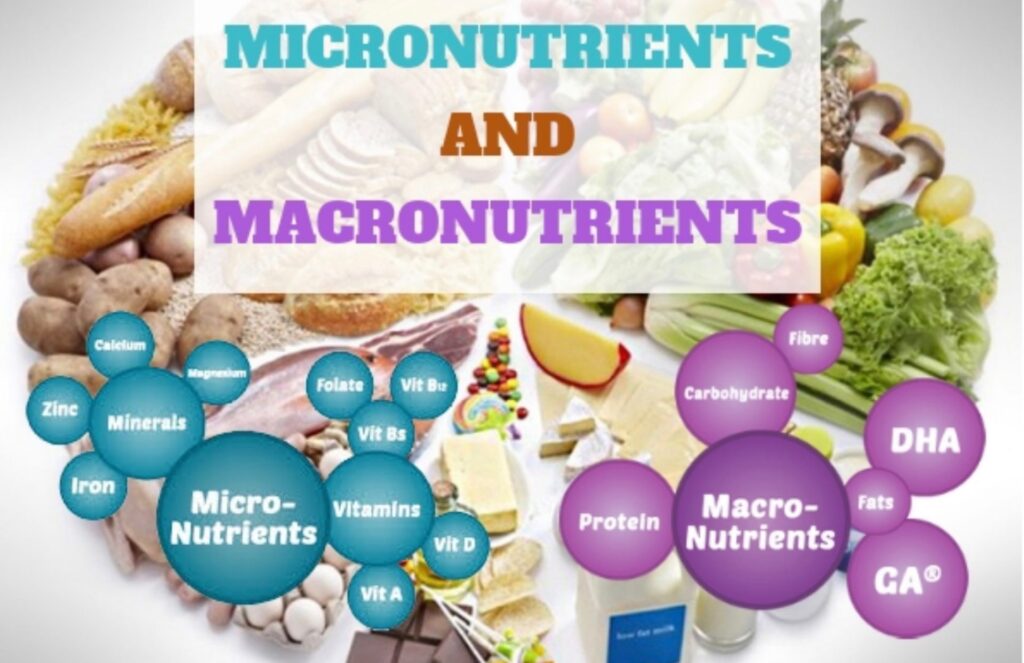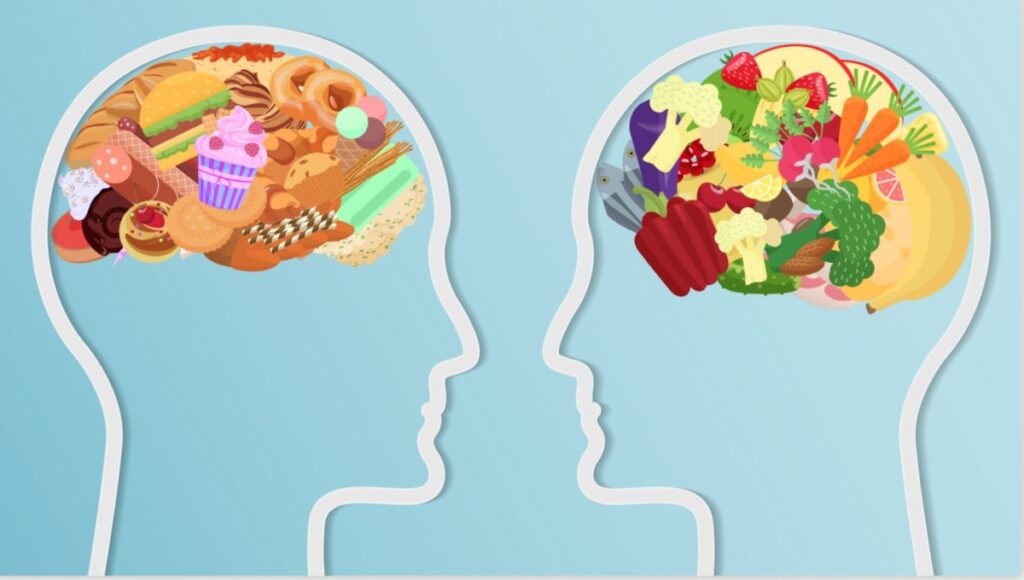Unlocking Health: What is The Definition of Nutrition Explained

When it comes to maintaining optimal health, one word that often comes to mind is nutrition. Nutrition plays a crucial role in our overall well-being, influencing everything from our physical fitness to our mental health. But what exactly is nutrition, and how does it impact our health? In this blog post, we will explore the definition of nutrition and delve into its various components to unlock the key to a healthy lifestyle.
What is Nutrition? Unveiling the Basics
Nutrition is the science that connects food and its nutrients to the health and functioning of the human body. It encompasses the journey of nutrients from ingestion through digestion, absorption, transportation, and utilization by the body. Essential to life, these nutrients include carbohydrates, proteins, fats, vitamins, minerals, and water, each serving distinct functions that contribute to our body’s maintenance, energy, repair, and growth.
Carbohydrates, proteins, and fats are known as macronutrients due to their requirement in larger amounts for energy and structural components, while vitamins and minerals, referred to as micronutrients, are required in smaller quantities but are vital for supporting bodily processes and preventing diseases.
Water, often overlooked, plays a critical role in nearly every bodily function, emphasizing nutrition’s comprehensive role in sustaining life and health. This synergy of nutrients ensures that our physiological systems operate effectively, highlighting nutrition’s foundational role in our well-being.
The Building Blocks of Nutrition: Macronutrients and Micronutrients

At the heart of nutrition lies two critical categories of nutrients: macronutrients and micronutrients. Macronutrients include carbohydrates, proteins, and fats, essential for providing the energy our bodies need to function and supporting bodily structures and systems.
Carbohydrates serve as the primary energy source, proteins are vital for repair and growth, and fats are crucial for energy storage and cell health. In contrast, micronutrients, though required in lesser amounts, are no less significant.
Vitamins and minerals fall into this category and are indispensable for orchestrating a range of physiological functions, from supporting bone health to bolstering the immune system. Each nutrient, whether a macro or micronutrient, plays a unique role, contributing to the complex interplay that sustains bodily functions and promotes health.
Understanding the significance of both macronutrients and micronutrients is fundamental in crafting a diet that supports optimal health, highlighting the importance of a varied and balanced dietary intake to meet the comprehensive nutritional needs of the human body.
The Role of Nutrition in Disease Prevention and Health Promotion
Embracing a nutritious diet is paramount in shielding our bodies against the onset of chronic diseases and in fostering overall wellness. Nutritional choices that emphasize the consumption of fruits, vegetables, whole grains, and lean proteins can significantly diminish the likelihood of heart disease, diabetes, and various forms of cancer.
Beyond mere disease prevention, nutrition intricately supports the immune system, equipping the body with the necessary defenses to combat infections and illnesses effectively. By integrating a diet abundant in these key food groups, individuals not only lower their risk for chronic conditions but also pave the way for a vibrant, healthful life.
The interplay between diet and disease prevention underscores the power of nutrition as a tool for health promotion, emphasizing the need for thoughtful dietary choices in maintaining optimal health.
Navigating Dietary Guidelines: What Constitutes a Balanced Diet?

Navigating the pathway to a balanced diet involves embracing a variety of foods from each of the essential food groups, ensuring that our nutritional intake is comprehensive and diverse. According to the USDA’s Dietary Guidelines for Americans, a balanced diet includes ample fruits and vegetables, whole grains, lean proteins, and healthy fats.
These elements work synergistically to fulfill the body’s nutritional needs, fueling it with the energy necessary for daily activities and optimal function. Incorporating a wide range of colors and types of food not only enhances the nutritional profile of our meals but also adds enjoyment to eating. The guidelines emphasize portion control and the importance of moderation, particularly with foods high in added sugars, saturated fats, and sodium.
By aligning our eating habits with these recommendations, we lay the groundwork for a nutritional regimen that bolsters our health, vitality, and well-being, steering clear of nutritional excesses and deficiencies. It’s about making thoughtful choices that align with dietary recommendations while also fitting into our individual lifestyles and preferences, crafting a balanced diet that is both nourishing and sustainable.
The Impact of Nutrition on Mental Health: Food for Your Mood

The intricate connection between diet and mental well-being is increasingly recognized as pivotal in sustaining mental health. Nutrients such as omega-3 fatty acids, found in fish and flaxseeds, alongside B vitamins prevalent in whole grains and leafy greens, play influential roles in brain function. Consuming a nutrient-rich diet contributes to improved mental clarity, resilience against stress, and overall mood enhancement.
Research underscores the significance of dietary patterns in modulating brain chemistry and emotional health, suggesting that what we eat can profoundly influence our psychological state.
By prioritizing foods that are abundant in these critical nutrients, individuals can foster a more positive mental outlook and enhance cognitive performance. This underscores the notion that our dietary choices extend beyond physical health, deeply impacting our emotional and mental landscapes.
Beyond the Plate: The Influence of Lifestyle and Environment on Nutrition

Nutrition’s influence on our health extends far beyond the simple act of eating. Lifestyle habits, such as the frequency of physical activity, stress management practices, and the quality of sleep, intricately intertwine with dietary choices to shape our overall well-being. Regular exercise, for instance, not only complements nutritional intake by enhancing metabolic health but also increases the body’s demand for nutrients.
Similarly, high stress levels can affect digestive health and alter eating habits, sometimes leading to overeating or undereating. Sleep, a critical but often overlooked component, impacts hormonal balance and can influence hunger and appetite, potentially affecting our dietary decisions.
Environmental factors equally play a significant role in our nutritional health. Accessibility to fresh, nutritious foods varies widely across different communities, significantly influencing dietary habits. Urban areas with abundant fast-food options and limited access to supermarkets with fresh produce can steer individuals towards less nutritious, calorie-dense foods. Furthermore, food marketing and societal norms around eating can shape perceptions and preferences, subtly guiding our dietary choices.
Acknowledging the interplay between lifestyle, environment, and nutrition invites a more holistic approach to health. It highlights the necessity of considering all aspects of life when striving for nutritional balance, illustrating that a healthy diet is but one piece of the complex puzzle of overall well-being.
Personalizing Nutrition: Tailoring Your Diet to Fit Your Unique Needs

Crafting a nutrition plan that aligns with your individual requirements involves more than just following general dietary guidelines. Each person’s body responds differently to various foods, influenced by genetics, health conditions, activity levels, and even personal tastes.
Recognizing and respecting these differences is crucial in creating a diet that not only nourishes but also fits comfortably into one’s lifestyle. Consulting with a registered dietitian or nutritionist can offer valuable insights into adjusting your food choices to better match your specific health goals, whether it’s weight management, controlling a chronic condition, or enhancing athletic performance. Incorporating foods that you enjoy and that also meet your nutritional needs ensures sustainability and pleasure in your eating habits, making your diet a lasting foundation for good health.
Meanwhile, paying attention to how your body reacts to certain foods can guide you in fine-tuning your diet, allowing for a more intuitive approach to eating. Personalizing your nutrition is not just about dietary exclusions or rigid meal planning; it’s about understanding and adapting to what your body needs to function at its best, creating a harmonious balance between nourishment and enjoyment.
Conclusion
Wrapping up, it’s clear that nutrition holds a pivotal role in maintaining and enhancing our health. Through a deeper understanding of nutrition’s foundational concepts, we’ve uncovered the vast influences of a nutrient-rich diet on both physical and mental aspects of health.
It is evident that thoughtful food choices, combined with an awareness of lifestyle and environmental impacts, are essential in fostering a state of well-being. Embracing the principles of balanced eating, while also tailoring our diet to meet individual needs and preferences, paves the way for a healthier life. By prioritizing nutrition and integrating it with other healthy habits, we empower ourselves to lead fuller, more vibrant lives.
The journey towards optimal health is personal and ongoing, but with the insights gained on nutrition’s critical role, we are better equipped to navigate this path. Let us commit to making nutrition a priority, recognizing its power to transform our health and enrich our lives.


